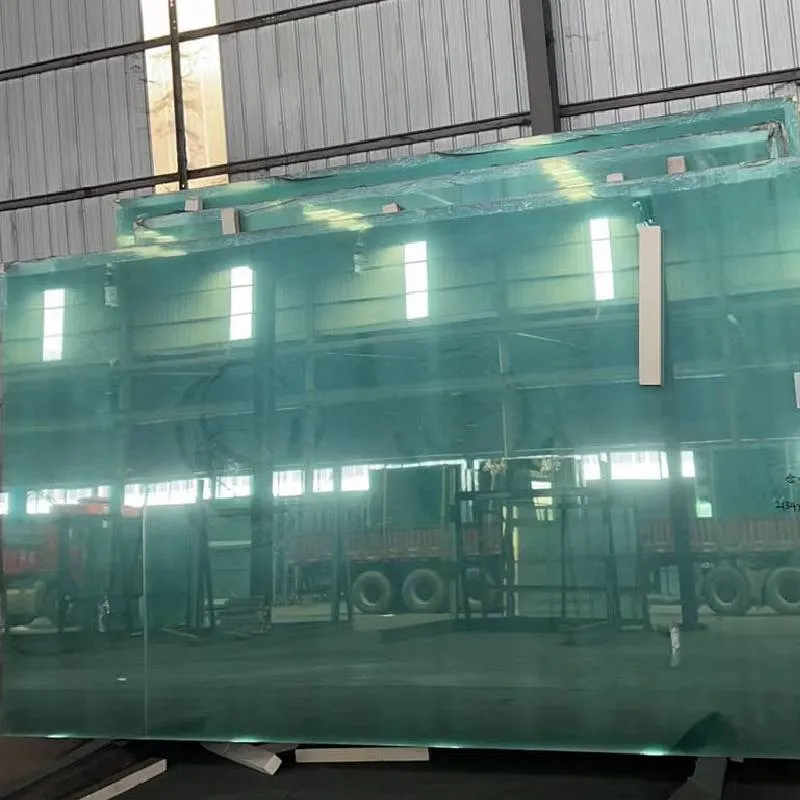The Versatile Uses of Float Glass
Float glass, a type of flat glass produced by floating molten glass on top of molten tin, has become one of the leading materials for various applications due to its unique properties. This manufacturing process not only ensures a smooth surface but also results in exceptional optical clarity and uniform thickness. The versatility of float glass is evident in its extensive range of uses across multiple industries.
Architecture and Construction
One of the most prominent applications of float glass is in the architecture and construction industry. Float glass is extensively used in building facades, windows, doors, and skylights. Its transparency allows for natural light to penetrate buildings, creating bright and airy interiors while providing thermal insulation. Moreover, float glass can be treated with specialized coatings to improve energy efficiency, reflecting heat in the summer and retaining warmth in the winter. This makes it an eco-friendly choice for modern buildings striving for sustainability.
Additionally, float glass can be used in the construction of curtain walls and glass bridges, enhancing aesthetic appeal while providing structural integrity. The use of tempered or laminated float glass increases safety and durability, making it suitable for high-rise buildings and public structures.
Automotive Industry
In the automotive industry, float glass is integral to the manufacturing of car windows, windshields, and mirrors. The properties of float glass provide excellent visibility and clarity, essential for driver safety. Moreover, like in construction, float glass can be treated and laminated to enhance its shatter resistance, protecting passengers in the event of an accident. As manufacturers continue to innovate, the use of float glass in vehicles is also expanding into panoramic roofs and complex shapes that enhance the overall design of modern automobiles.
Home Decor and Furniture
Float glass is not limited to functional applications; it also plays a significant role in home decor and furniture design. The use of float glass in tabletops, shelving, and decorative panels allows for a clean and contemporary look that complements various interior styles. Its surface can be easily tempered, painted, or printed on, offering versatility for designers and architects alike.
float glass uses
Furthermore, the trend of using glass in interior design has increased, with float glass being utilized in partitions, balustrades, and shower enclosures. The aesthetic appeal of transparent or translucent materials creates an illusion of space and light, making interiors appear more open and inviting.
Electronics and Technology
In the realm of electronics, float glass has essential applications in the production of televisions, computer monitors, and smartphones. The glass used in these devices is engineered to be thin yet strong, providing a protective layer for screens while maintaining clarity and responsiveness. Advances in technology have also led to the development of glass that incorporates touch sensing capabilities, paving the way for innovative user interfaces.
As technology continues to evolve, float glass is at the forefront of developments, with new treatments and coatings enhancing its functionality. For instance, anti-reflective coatings improve visibility in bright conditions, while strengthening treatments enhance durability against accidental drops and scratches.
Sustainable Practices
In recent years, the focus on sustainability has driven innovation in the float glass industry. Manufacturers are now seeking ways to produce float glass using less energy and with lower emissions. The recycling of glass is also gaining prominence; float glass can be recycled multiple times without losing quality, which significantly reduces waste and production costs. This commitment to sustainability not only benefits the environment but also aligns with the growing consumer demand for eco-friendly products.
Conclusion
Float glass stands out as a highly versatile material that finds applications across various industries, including construction, automotive, home decor, electronics, and technology. Its unique properties, such as optical clarity, thermal insulation, and safety enhancements, make it a preferred choice for manufacturers and designers alike. As the world continues to embrace sustainability, the float glass industry is poised to innovate further, ensuring that this remarkable material remains at the forefront of modern applications. Whether used structurally in buildings or decoratively in homes, the impact of float glass is indeed profound and far-reaching.
 Afrikaans
Afrikaans  Albanian
Albanian  Amharic
Amharic  Arabic
Arabic  Armenian
Armenian  Azerbaijani
Azerbaijani  Basque
Basque  Belarusian
Belarusian  Bengali
Bengali  Bosnian
Bosnian  Bulgarian
Bulgarian  Catalan
Catalan  Cebuano
Cebuano  Corsican
Corsican  Croatian
Croatian  Czech
Czech  Danish
Danish  Dutch
Dutch  English
English  Esperanto
Esperanto  Estonian
Estonian  Finnish
Finnish  French
French  Frisian
Frisian  Galician
Galician  Georgian
Georgian  German
German  Greek
Greek  Gujarati
Gujarati  Haitian Creole
Haitian Creole  hausa
hausa  hawaiian
hawaiian  Hebrew
Hebrew  Hindi
Hindi  Miao
Miao  Hungarian
Hungarian  Icelandic
Icelandic  igbo
igbo  Indonesian
Indonesian  irish
irish  Italian
Italian  Japanese
Japanese  Javanese
Javanese  Kannada
Kannada  kazakh
kazakh  Khmer
Khmer  Rwandese
Rwandese  Korean
Korean  Kurdish
Kurdish  Kyrgyz
Kyrgyz  Lao
Lao  Latin
Latin  Latvian
Latvian  Lithuanian
Lithuanian  Luxembourgish
Luxembourgish  Macedonian
Macedonian  Malgashi
Malgashi  Malay
Malay  Malayalam
Malayalam  Maltese
Maltese  Maori
Maori  Marathi
Marathi  Mongolian
Mongolian  Myanmar
Myanmar  Nepali
Nepali  Norwegian
Norwegian  Norwegian
Norwegian  Occitan
Occitan  Pashto
Pashto  Persian
Persian  Polish
Polish  Portuguese
Portuguese  Punjabi
Punjabi  Romanian
Romanian  Russian
Russian  Samoan
Samoan  Scottish Gaelic
Scottish Gaelic  Serbian
Serbian  Sesotho
Sesotho  Shona
Shona  Sindhi
Sindhi  Sinhala
Sinhala  Slovak
Slovak  Slovenian
Slovenian  Somali
Somali  Spanish
Spanish  Sundanese
Sundanese  Swahili
Swahili  Swedish
Swedish  Tagalog
Tagalog  Tajik
Tajik  Tamil
Tamil  Tatar
Tatar  Telugu
Telugu  Thai
Thai  Turkish
Turkish  Turkmen
Turkmen  Ukrainian
Ukrainian  Urdu
Urdu  Uighur
Uighur  Uzbek
Uzbek  Vietnamese
Vietnamese  Welsh
Welsh  Bantu
Bantu  Yiddish
Yiddish  Yoruba
Yoruba  Zulu
Zulu 

